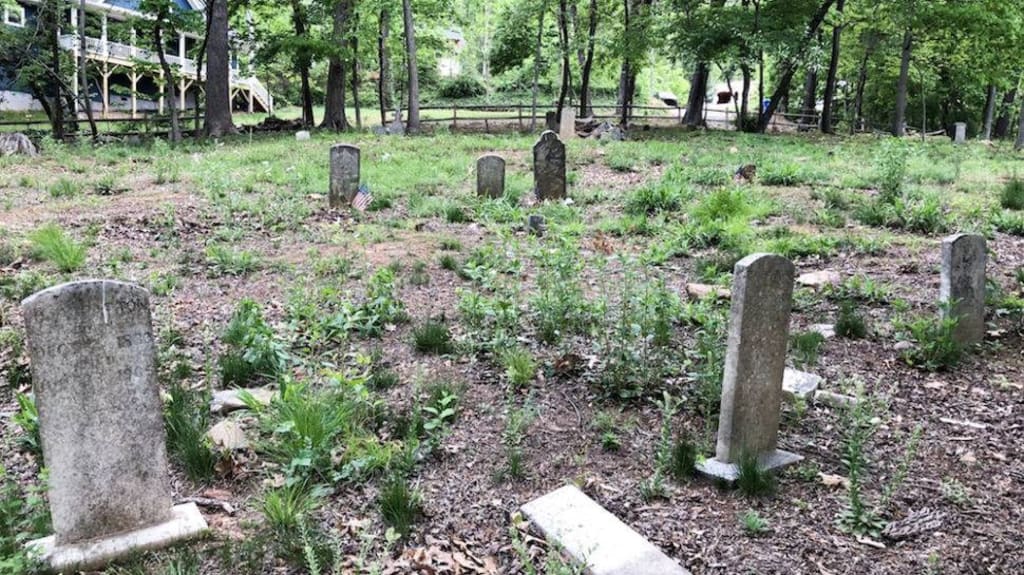Slave Deaths History Doesn't Talk About
Inconvenient Murders

There is a story told about Ella Sheppard, the matriarch of the Fisk University Jubilee Singers, where her mother, distraught that her owner wouldn’t allow Ella to be sold to her father; was ready to drown 3-year-old Ella that she might know freedom of another kind. In some stories, it was “Mammy Vinny” who cried out and stopped Sarah from killing her child; in another version, “Aunt Cherry” intervened, saying; “God’s got great work for this baby to do. She’s going to stand before Kings and Queens.”
Ella did go on and perform with the Jubilee Singers before Kings, Queens, Presidents, and more as they raised the money to save Fisk University and build its first permanent structure. Sarah’s threat to kill her slave was real as some parents did indeed end their children’s lives rather than let them be subjugated to a lifetime of suffering.
Margaret Garner did kill her youngest daughter and was overpowered before she could kill her three other children. Slave catchers were literally at her door to return her family to slavery though they had escaped to a free state. Stories like Margaret’s are readily found and documented. There is another type of slave death for which there is little information; the slaves killed by their masters before the end of the Civil War that out of spite preferred to see them dead, rather than free.
I was reading, “Dark Midnight When I Rise,” the meticulously researched book which is the early history of the Jubilee Singers and I came across multiple references to these types of murders. Katie Rowe of Arkansas quoted her master in, Lay My Burden Down;
“You niggers been seeing the Confederate soldiers coming by here looking pretty raggedy and hurt and wore out, but that no sign they licked! Them Yankees ain’t gwine get this far, but if they do, you ain’t gwine to get free by them, because I gwine free you before that. When they get here they gwine find you already free, because I gwine line you up on the bank of the Bois d’ Arc Creek and free you with my shotgun.”
In, My Folks Don’t Want Me to Talk About Slavery, Sarah Debro said;
“I remember when (‘Fightin’ Joe’) Wheeler’s Calvary come through. They was ‘federates, but they was mean as the Yankees. They stole everything they could find and killed a pile of niggers. They come around checking. They ask the niggers if they wanted to be free. If they say yes, then they shot them down, but if they say no, they let them alone. They took three of my uncles out in the woods and shot they faces off.”
An Inspector for the army, Alf Roman, wrote of the misdeeds of Wheeler’s Calvary, though the language was couched and made no mention of killing slaves. The language he chose was, “brutal interference with private property.” He wrote:
“Much has been said — and is still being said — of the gross misconduct of General Wheeler’s men. Their alleged depredations and straggling propensities and their reported brutal interference with private property, have become common by‑words in every county where it has been their misfortune to pass. Public rumor condemns them everywhere; and not a few do we find in Georgia as well as in South Carolina who look upon them more as a band of highway robbers than as an organized military band.”
The Constitution of the United States doesn’t explicitly mention slavery until the Thirteenth Amendment in 1864. The Supreme Court decided in 1857 that black people were not citizens and essentially had no rights at all. Several individual states had laws against slave homicide; they generally contained the exception of a master killing their own slaves, “when necessary.” There was nothing to keep slave owners from killing their own slaves which is what many of them did, rather than see them freed in the Civil War.
If I knew of a source that recorded a percentage of owners who killed their slaves rather than lose them I would cite it. I can find the number of slave children stillborn in some states but not slaves that were slain. The accumulation and sale of slaves are well documented with regard to their value as property; their murders less so. No combination of words I Googled brought me closer to an answer as to, how many? I continue to search, but this may be another example where American history couldn’t handle the truth, so buried it instead.
About the Creator
William Spivey
I write because I must, no peace will I attain until my thoughts are put down on paper. Only then may I rest. I write about race, politics, education, and history. Can you handle the truth?






Comments
There are no comments for this story
Be the first to respond and start the conversation.